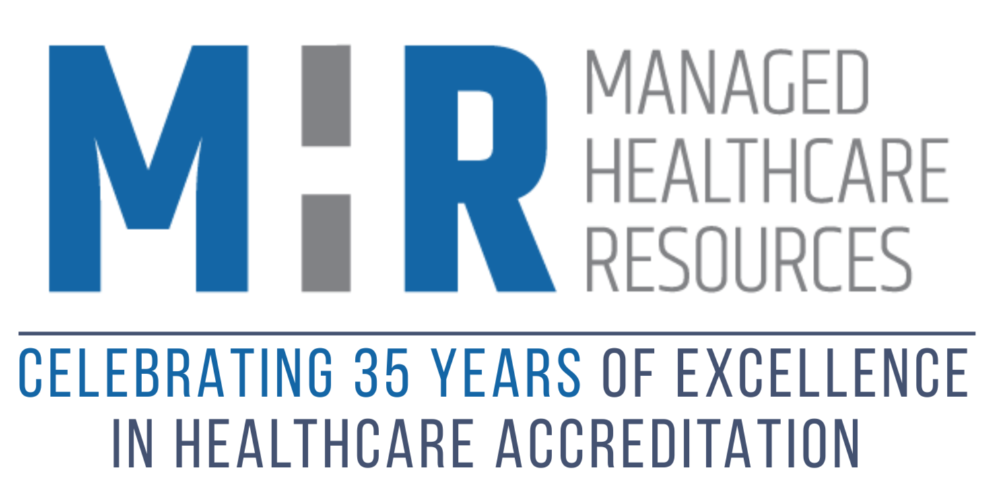
By Nancy Ross Bell, RN
Estimated time to read: 3 minutes
Hiring the right person for your NCQA accreditation team isn’t just important—it’s essential. One bad hire can send ripples through your organization, impacting timelines, compliance, morale, and even your bottom line.
Accreditation roles are mission-critical. A bad hire can cost more than $27,000 in direct salary, not to mention the wasted time and additional recruitment costs. But the real damage often lies deeper in missed deadlines, poor survey outcomes, and eroded team trust. While most hiring managers focus on general quality assurance experience, success in NCQA accreditation requires more than that. You need someone with precision, proven competency, and cultural alignment.
So, how do you hire the right person?
First, Define the Role Clearly
Start by defining what you need. Are you hiring a team member, a team leader, or a solo accreditation expert?
- Team Members may not need to know all standards, but should demonstrate growth potential.
- Team Leaders must have deep NCQA knowledge and leadership skills.
- Solo Accreditation Leads must juggle multiple responsibilities, train others, and keep the process organized and timely.
At Managed Healthcare Resources (MHR), we recommend hiring “forward”—choosing people who can grow with your needs rather than only meet today’s requirements.
Values First: Skills Aren’t Enough
You can find candidates with strong résumés and technical answers, but if their values don’t align with your organization, it’s a red flag.
That’s why MHR incorporates values-based screening into our process. We ask candidates to submit videos answering questions like:
- What excites you about working with MHR?
- How do you manage competing priorities under pressure?
- Tell us about a time you led an NCQA survey from start to finish.
The way someone talks about their work often reveals how well they’ll fit your culture. Values alignment ensures long-term success, not just short-term output.
Assess for Technical Competence
NCQA accreditation is complex. Beyond general knowledge, candidates must demonstrate readiness across multiple technical areas. We use detailed checklists in our interviews, including:
- Document prep & standards: Do they know NCQA requirements inside and out? Can they show annotated examples they’ve personally created?
- Team coordination: Can they manage Subject Matter Experts (SMEs) and timelines effectively?
- NCQA communication & IRT: Have they used the Interactive Review Tool (IRT)? Can they explain how they handled challenges?
- Training others: Have they onboarded new team members or led internal education?
- Survey prep: Can they walk you through how they’ve handled survey participation, file audits, and live Q&A?
When candidates can’t speak clearly about standards or avoid discussing previous remediation strategies, consider that a red flag.
Go Beyond the Résumé: Behavioral Interviews
We also strongly advocate for structured behavioral interviewing. Using the STAR method—Situation, Task, Action, Result—you can uncover how candidates actually behave under pressure, not just how they say they perform.
For example:
- “Tell me about a time you remediated a gap before submission.”
- “How do you keep SMEs accountable when deadlines are tight?”
- “Describe how you train new staff on NCQA standards.”
Listen for answers that reveal humility, initiative, and strong interpersonal skills. At MHR, we use the “Ideal Team Player” model: Humble, Hungry, and People Smart.
Understand Personality Fit with DISC
Accreditation roles often require precision, focus, and follow-through. That’s why we integrate DISC® (Dominance, Influence, Steadiness, and Conscientiousness) personality assessments into our hiring process.
Ideal DISC profiles include:
- C (Conscientious) – Detail-oriented and reliable
- CS or SC (Conscientious + Steady) – Great balance of logic and consistency
- S (Steady) – Calm and dependable, though less ideal in leadership roles
While personality alone shouldn't make or break a hire, it can help explain how someone will function on your team—and whether they’ll thrive in your environment.
Our Proven Hiring Process at MHR
Here’s a snapshot of how we screen NCQA accreditation talent:
- Video Submission – Candidates respond to specific prompts.
- CEO Evaluation – Initial review of resume and video.
- Screening Call – To dig deeper into experience and fit.
- DISC Assessment – Personality alignment check.
- Accreditation Exercise – Candidates must score at least 85%.
- Three Interviews – Two with team leads, one final with the CEO.
- References & Background Check
It’s a thorough process—but a necessary one. Accreditation mistakes are too costly to risk rushing a hire.
Bottom Line
A bad hire in NCQA accreditation isn’t just inconvenient—it can derail your timelines, risk your compliance status, and hurt your credibility with leadership, regulators, and future partners.
Hiring slowly, with intention, ensures you protect your investment, your team, and your organization’s reputation.
Need help screening NCQA candidates?
At MHR, we’ve evaluated thousands of résumés, co-led interviews with clients, and built a proven system to identify who’s truly ready—and who’s not. If you don’t know what to look for, we can help you figure it out.
Let’s make your next accreditation hire a game-changer. Reach out to us through our Contact page or your MHR consultant.
MHR’s webinar Nail Your Next Accreditation Hire, as presented by MHR’s President & CEO, Susan K. Moore, on June 12, 2025, was the inspiration for this blog. Hear the recording of the webinar on MHR’s Events page, plus download our DISC Assessment tool to learn more about aligning DISC types with Accreditation tasks.



